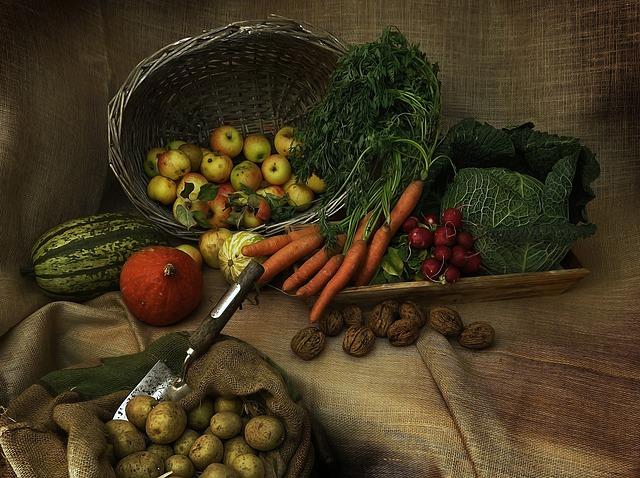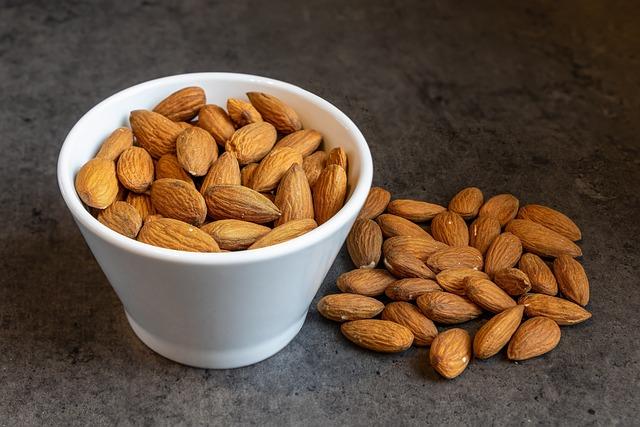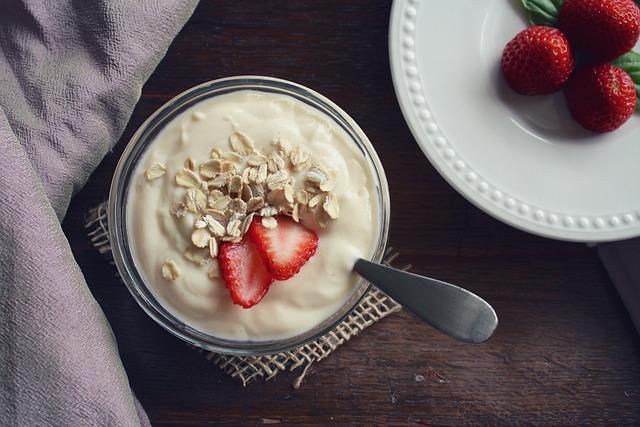In the vast tapestry of dietary choices, vegetarianism emerges as a vibrant thread, woven with intentions of health, ethics, and sustainability. As more individuals embrace this plant-centric lifestyle, a curious question arises, dancing on the edge of tradition and modernity: Are dairy products essential in a vegetarian diet? This inquiry invites us to explore the historical roots of dairy consumption, its nutritional offerings, and the evolving perspectives within vegetarian communities. Through the lens of science and cultural practices, we embark on a journey to unravel whether dairy remains a cornerstone of vegetarian nourishment or if the path to a balanced diet can be paved with plant-based alternatives. Join us as we delve into this nuanced discourse, navigating the crossroads of necessity, preference, and innovation.
Understanding the Nutritional Role of Dairy in Vegetarian Diets
Incorporating dairy into a vegetarian diet can be a matter of personal preference and nutritional necessity. Dairy products are a well-known source of essential nutrients that can support overall health, particularly for those who exclude meat from their diets. Calcium, vitamin D, protein, and vitamin B12 are some of the vital nutrients found in milk, cheese, and yogurt, which play a crucial role in bone health, muscle function, and energy production. However, it’s important to note that these nutrients can also be obtained from other plant-based sources or fortified foods.
For vegetarians seeking alternatives or aiming to reduce dairy consumption, there are plenty of nutrient-rich options available. Consider including the following in your diet:
- Leafy greens such as kale and broccoli, which are high in calcium.
- Fortified plant-based milks like almond, soy, or oat milk, which often contain added calcium and vitamin D.
- Nuts and seeds, particularly almonds and chia seeds, which provide protein and calcium.
- Legumes and beans, offering a good source of protein and other essential nutrients.
- Nutritional yeast, which is often fortified with vitamin B12.
Ultimately, the necessity of dairy in a vegetarian diet depends on individual dietary needs and preferences. By exploring a variety of foods, vegetarians can ensure they receive the necessary nutrients for a balanced diet, with or without dairy.
Exploring Plant-Based Alternatives to Dairy Products
In the quest for a balanced vegetarian diet, many individuals are turning to plant-based alternatives to traditional dairy products. These alternatives not only cater to those with lactose intolerance or dairy allergies but also provide options for those seeking to reduce their environmental footprint. Plant-based dairy substitutes can be derived from a variety of sources, offering a plethora of flavors and nutritional benefits. Some popular options include:
- Almond Milk: Known for its light and nutty taste, almond milk is low in calories and often fortified with vitamins and minerals.
- Soy Milk: A high-protein alternative, soy milk is rich in essential amino acids and closely mimics the nutritional profile of cow’s milk.
- Oat Milk: Creamy and slightly sweet, oat milk is high in fiber and often favored for its environmental sustainability.
- Coconut Milk: With a rich, tropical flavor, coconut milk is ideal for cooking and baking, adding a unique twist to traditional recipes.
Each of these options brings something unique to the table, allowing vegetarians to enjoy a variety of textures and tastes without compromising on nutrition. Whether used in morning smoothies, creamy soups, or decadent desserts, plant-based dairy alternatives can seamlessly integrate into a vegetarian lifestyle.

Balancing Calcium and Vitamin D Without Dairy
For those seeking to maintain optimal levels of calcium and vitamin D without relying on dairy, a variety of plant-based options can be both delicious and effective. Leafy greens such as kale, collard greens, and broccoli are excellent sources of calcium, offering a nutrient-packed punch with every bite. Fortified plant milks—like almond, soy, and oat—often come enriched with both calcium and vitamin D, making them a convenient substitute for traditional dairy. Don’t forget about tofu and tempeh, which are not only versatile but also rich in calcium.
Beyond food, sunlight remains a crucial ally in balancing these nutrients. Regular exposure to sunlight helps your body produce vitamin D naturally, a process that is vital for calcium absorption. Additionally, consider adding supplements if dietary sources are insufficient, but always consult with a healthcare professional before starting any new supplement regimen. By diversifying your diet and embracing these alternatives, you can achieve a balanced intake of calcium and vitamin D while adhering to a vegetarian lifestyle.

Expert Recommendations for a Dairy-Free Vegetarian Lifestyle
For those embracing a vegetarian lifestyle, the inclusion of dairy has often been touted as essential for ensuring adequate intake of certain nutrients. However, with growing awareness and availability of alternatives, many experts suggest that a dairy-free vegetarian diet can be just as nourishing, if not more so. Here are some expert-backed recommendations to thrive without dairy:
- Calcium Sources: Leafy greens such as kale, bok choy, and broccoli, along with fortified plant-based milks and juices, can effectively meet your calcium needs.
- Vitamin D Intake: Consider incorporating vitamin D-rich foods like fortified cereals and mushrooms. Exposure to sunlight and supplements can also play a crucial role.
- Protein Power: Explore plant-based protein options such as lentils, chickpeas, quinoa, and tofu to ensure your diet remains balanced and fulfilling.
By focusing on a diverse array of plant-based foods, you can enjoy a wholesome diet without dairy. The key is to maintain a varied and colorful plate, ensuring all nutritional bases are covered.
In Conclusion
In the grand tapestry of dietary choices, the role of dairy in a vegetarian diet is but a single thread, woven with both tradition and modern nutritional insights. As we’ve explored, dairy products can offer a convenient source of essential nutrients, yet they are not the sole path to a balanced and nourishing vegetarian lifestyle. Whether one chooses to embrace dairy or explore plant-based alternatives, the journey is deeply personal and should be guided by individual health needs, ethical considerations, and culinary curiosity. Ultimately, the decision lies in the hands of each individual, empowered by knowledge and inspired by the endless possibilities of a plant-rich diet. So, as you navigate your own dietary path, may you find joy in the journey and fulfillment in the choices that resonate most with your values and well-being.




